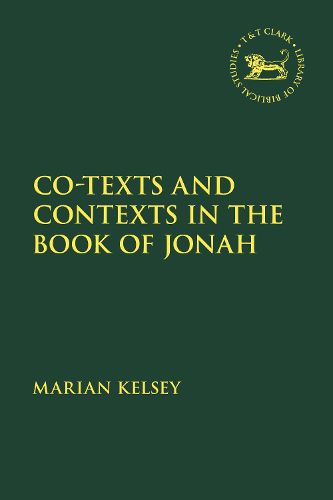Readings Newsletter
Become a Readings Member to make your shopping experience even easier.
Sign in or sign up for free!
You’re not far away from qualifying for FREE standard shipping within Australia
You’ve qualified for FREE standard shipping within Australia
The cart is loading…






Marian Kelsey argues that the book of Jonah weaves together many narratives with shared themes into a phenomenon of 'interlocking allusion'. While describing the adventures of its protagonist, the narrative uses phrases, plot-lines and themes from many other scriptural texts, in such a way that a core interest of the book is to reflect upon a concept of and significant elements from scripture. Kelsey thus suggests that the author(s) of the book engages with and reflects on scriptural literature, exploring the character of God as presented in the literature, and the implications for humanity when it behaves in a manner judged to be wicked.
Kelsey begin by surveying the potential allusions suggested by other scholars, grouped according to the text or narrative to which the book of Jonah purportedly alludes; and further reviews the methodological considerations of how allusions are to be defined and detected, and how the book of Jonah is to be evaluated as part of the Twelve Minor Prophets. She discusses the likely dating of the book and explores the question of the book's genre, concluding that there is a convincing explanation of the true referent of book as being Jerusalem, and that the purpose of the final line is neither rhetorical question nor statement, but true question.
$9.00 standard shipping within Australia
FREE standard shipping within Australia for orders over $100.00
Express & International shipping calculated at checkout
Marian Kelsey argues that the book of Jonah weaves together many narratives with shared themes into a phenomenon of 'interlocking allusion'. While describing the adventures of its protagonist, the narrative uses phrases, plot-lines and themes from many other scriptural texts, in such a way that a core interest of the book is to reflect upon a concept of and significant elements from scripture. Kelsey thus suggests that the author(s) of the book engages with and reflects on scriptural literature, exploring the character of God as presented in the literature, and the implications for humanity when it behaves in a manner judged to be wicked.
Kelsey begin by surveying the potential allusions suggested by other scholars, grouped according to the text or narrative to which the book of Jonah purportedly alludes; and further reviews the methodological considerations of how allusions are to be defined and detected, and how the book of Jonah is to be evaluated as part of the Twelve Minor Prophets. She discusses the likely dating of the book and explores the question of the book's genre, concluding that there is a convincing explanation of the true referent of book as being Jerusalem, and that the purpose of the final line is neither rhetorical question nor statement, but true question.